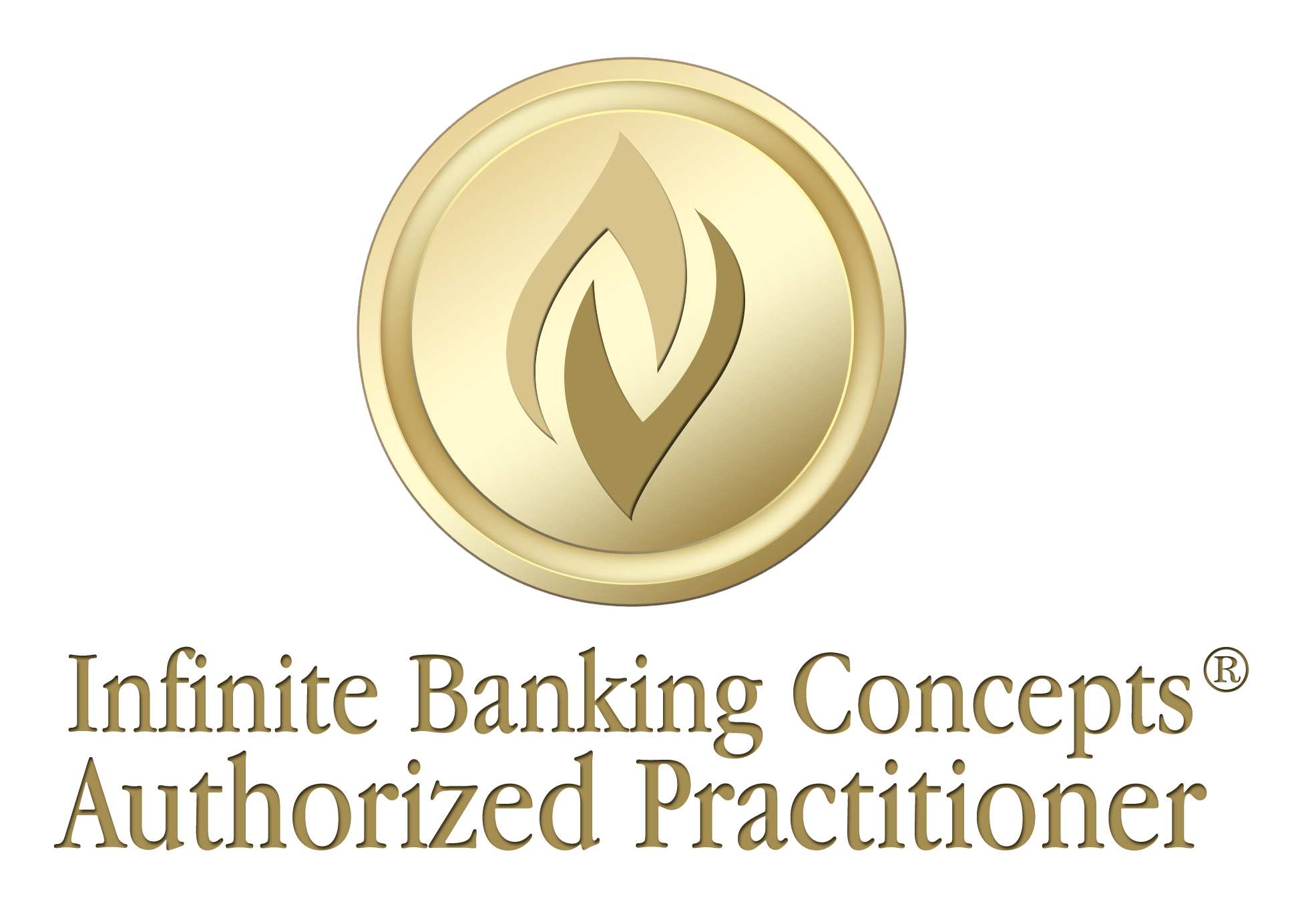
Here’s what nobody tells you about early retirement: hitting your number rarely fixes what’s actually broken.
I’ve watched people obsess over their FIRE (Financial Independence, Retire Early) calculations, convinced that $1.5 million or $2 million will finally deliver peace of mind. They track every dollar, live on 50% of their income, and count down the days until they can quit their jobs.
Then they reach their goal and discover something unsettling. The anxiety doesn’t disappear. Sometimes it gets worse.
Research on what’s called “One More Year Syndrome” reveals a brutal truth: people who achieve financial independence often become more anxious and depressed after quitting their jobs. Once work is removed as a reason for unhappiness, they’re forced to face deeper fears and anxieties about who they really are.
The number was never the problem.
When Money Becomes A Mirage
I work primarily with entrepreneurs and small business owners, and most of them don’t talk much about traditional retirement. They love what they do. They’re building something meaningful.
But I’ve noticed something consistent: the ones who struggle most with money aren’t the ones making the least. They’re the ones who never learned how to manage what they have.
Making money and feeling secure about money are completely different skills.
Most of us were never taught the second one. Schools don’t cover it. Parents often don’t know it themselves. So we default to what the banks and Wall Street tell us, hoping someone else has the answers.
The FIRE movement tries to solve this by giving people a clear target. Save aggressively. Invest in index funds. Hit your number. Retire early.
It’s measurable. It’s concrete. It feels like control.
But as Psychology Today research points out, money becomes a mirage that distracts from deeper questions about identity, meaning, and purpose. One FIRE adherent confessed: “I had no idea what to do next. I had spent so much time fixating on the finish line that I hadn’t done the internal work to figure out who I wanted to be.”
The spreadsheet can’t answer that question.
The Real Source of Financial Anxiety
Here’s what surprised me most when I started working with clients on whole life insurance and infinite banking concepts: the relief they felt had nothing to do with returns or growth rates.
It was about control.
A few years ago, a veterinary surgeon called me in a panic. He’d been building his whole life policy for two years, paying $50,000 annually in premiums. Now he had an opportunity to buy a boarding facility, needed $100,000 to close the deal, and the banks had shut him down.
He was successful. He made good money. But in that moment, he felt powerless.
I looked at his policy and told him to pay his third annual premium of $50,000. Within days, he’d have over $100,000 available to borrow against his cash value. No questions asked. No bank approval needed.
He’d put in $60,000 to cash value over two years, plus another $30,000 with that third payment. His policy had grown to about $120,000 in cash value, and he could access $110,000 of it immediately.
The banks told him to pound sand. His own policy gave him the capital he needed. That’s when something clicked for him. It wasn’t about the interest rate or the return. It was about who controlled the money.
Why 77% Of Americans Feel Financially Anxious
A Capital One study found that 77% of Americans report their financial situation makes them anxious. 68% worry about not having enough money to retire. More than half think they’ll outlive their savings.
These aren’t just people struggling to make ends meet. Many of them are objectively financially secure.
The problem isn’t the amount saved. It’s the psychological relationship with money itself.
Financial therapy pioneer Rick Kahler discovered that 90% of financial decisions are made emotionally, not rationally. You can create a perfect plan on paper, but if you have deep anxieties about money, you won’t follow through.
He worked with a couple in their 70s who had a 95% chance of retirement success. They still didn’t retire because the husband couldn’t stomach keeping money in equity markets. There were psychological and emotional drivers underneath the surface keeping them from living the life they wanted.
Hitting a number doesn’t resolve that.
The Scarcity Paradox
What bothers me most about the extreme frugality in FIRE is that it often creates the exact mindset it’s trying to escape.
When you train yourself to see every expense as an enemy, when you live on a shoestring for years to hit your target, you’re programming a scarcity mentality into your nervous system. Then you reach your number and can’t turn it off.
I’ve seen this play out. People who spent years hoarding money suddenly feel guilty about spending it. They’ve internalized the idea that money is something to accumulate, not a resource to enhance their lives.
The intense focus on budgeting and restriction can lead to burnout. You’re essentially living in scarcity to achieve future abundance, but the psychological patterns you develop don’t just disappear when you hit your target.
There’s a better way to think about this.
Creating A Closed Loop Economy
One of my mentors introduced me to a concept that changed everything: creating a closed loop economy for yourself and your family.
Most people think about “the economy” as something external. The stock market. The job market. The housing market. But the economy that matters most is your own. The money coming into your system, how it flows through, and how much you keep for yourself. When you start operating like a banker for yourself, you think differently. You act differently.
I had a client with a modest $10,000 annual premium policy. She told me she had no debt, so there wasn’t an obvious strategy for using the cash value. She was a crypto investor, waiting for her big windfall. A year into her policy, the crypto market dipped. She took a loan from her policy to buy more crypto, then paid it back to the insurance company over time. Restocked the shelves.
Another year later, she mentioned she had a vehicle loan. Interest-free, $400 a month for four more years. She thought interest-free was good enough. But I pointed out that $400 a month for four years is $19,200 she’d never see again. Not because of interest, but because of cash flow leaving her system permanently.
That’s when it clicked for her. It wasn’t about interest rates. It was about who controlled the money. She paid off the vehicle with a policy loan and started making those $400 payments back to herself. The insurance company reapplied it to her cash value, and now that money keeps growing for her next opportunity.
Real estate. Another business. More crypto. Whatever she wants. The money stays in her system instead of flowing out to someone else’s pocket.
The Peace of Mind Difference
There’s a fundamental difference between the peace of mind I see in my clients and what FIRE promises.
FIRE says: save aggressively, invest in index funds, hit your number, then you can relax.
But Princeton research reveals something different. Financial security concerns, more than actual money, determine life satisfaction.
Women making $100,000 a year reported unhappiness when constantly worried about getting fired or losing health insurance. Many had plenty of money by conventional standards, but lacked the psychological security that comes from control.
When my clients start functioning as their own banker, they experience tremendous peace of mind. Not because they hit a magic number, but because they have control over their cash flow and where their money goes.
They’re not dependent on bank approval. They’re not at the mercy of market conditions for accessing their capital. They’re not hoping some external system will work in their favor.
They’ve built a safe, liquid, growing asset that gives them options.
Why Whole Life Insurance Addresses The Real Problem
The FIRE movement gets some things right. Saving aggressively is smart. Living below your means creates margin. Thinking long-term about financial security matters.
But the execution creates problems.
Locking money away in accounts you can’t access without penalties. Tapping into principal when you need cash, which reduces future growth. Living in restriction for years to hit an arbitrary number.
Properly designed whole life insurance contracts solve these issues.
You’re saving aggressively, but in an environment that maximizes growth. The yields are competitive with high-interest savings accounts, but it’s all net of taxes.
You can still invest in real estate, crypto, or whatever you want. But you run it through your policy first. Take a loan against your cash value, put that money to work, and your cash value keeps growing as if you never touched it.
You’re not tapping into principal. You’re borrowing against it.
When you pay the loan back to the insurance company, you’re functioning as a banker for yourself. Just like a regular banker wants to be repaid at interest, so do you when you play that role.
This is what Nelson Nash called “becoming your own banker” in his book back in 2000. The infinite banking concept allows you to take back the banking function from traditional banks.
Most people never think about this because banks have always done it for us. We make money, save very little, and put the rest at risk in investments where we bear all the downside.
When you start operating like a banker for yourself, you close that loop. Less money flows out to banks, credit card companies, and other lenders. More stays in your system, compounding and growing tax-free.
The Education Gap Nobody Talks About
I’ve noticed something interesting about financial intimidation. It shows up in subtle ways.
Clients will read about infinite banking concepts intellectually. They’ll understand the mechanics. But until they actually do it, until they take that first loan and put the money to work, they don’t fully get it.
It’s like practicing music for years. You understand the theory, you can play the notes, but you don’t feel like a musician until you perform and people respond to it. The same thing happens with money. Until you exercise that muscle, until you experience being your own banker, it remains abstract.
I’ve seen six-year-olds grasp these concepts quickly when their parents start policies for them young. It becomes natural, like a piggy bank but more sophisticated. They learn that money can work for them, that they can earn interest, that they have control.
Most of us never got that education. We were taught to get a good job, make more money, and leave the financial stuff to professionals.
That’s not how successful people operate. They may use Wall Street and traditional investments, but they’re not doing what banks and governments tell regular people to do when it comes to wealth building.
Rethinking The Retirement Construct
Here’s something most people don’t know: retirement as a concept was invented by Otto von Bismarck in late 1800s Germany.
He wasn’t trying to give people freedom. He was trying to push older workers out of the workforce to make room for younger ones. He created pensions as a political solution to a labor problem.
That construct stuck. Now we assume you work until 65 or 70, then you finally get to enjoy life. It’s a scarcity mindset baked into our culture.
Most of my clients are entrepreneurs who love what they do. They’re not trying to escape work. They’re trying to build something meaningful and create legacy.
When they think about exit strategies, it’s not about stopping. It’s about having options.
That’s what whole life insurance provides. As you build up your policies over time, you create a separate financial system that generates ongoing income. You become a lender. You hold capital and put it to work at interest.
Whether you sell your business, pass it to your kids, or walk away, you have this system that keeps working for you.
Plus there’s the death benefit, which creates intergenerational wealth and legacy beyond just the cash value you’ve accumulated.
What FIRE Gets Wrong About Freedom
Financial independence shouldn’t mean living in restriction until you hit an arbitrary number. Real financial independence means having control over your cash flow, your decisions, and your options at every stage of life. It means building a system where money works for you instead of you constantly chasing more money. It means creating abundance, not just escaping scarcity.
The FIRE movement attracts people because it promises freedom. But the path it prescribes often creates the opposite: years of restriction, anxiety about market performance, and dependence on external systems for accessing your own capital.
When you understand infinite banking and properly designed whole life insurance, you realize there’s a better way.
You can save aggressively without locking your money away. You can invest without sacrificing liquidity. You can build wealth without living in scarcity. Most importantly, you can have peace of mind that comes from control, not just from hitting a number.
Because at the end of the day, that’s what people are really seeking. Not early retirement. Not a magic savings target. They want to feel secure. They want options. They want control over their financial lives.
And that’s something you can build starting today, regardless of where you are on your financial journey.
It’s a process. It takes time. But unlike chasing a FIRE number, this process gives you benefits and peace of mind along the way, not just at some distant finish line.
That’s the difference between solving the right problem and solving the wrong one.




